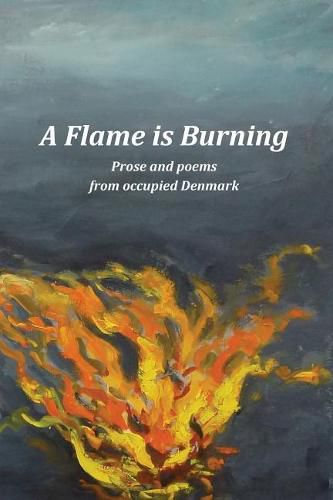A Flame Is Burning: Prose and Poems from Occupied Denmark

A Flame Is Burning: Prose and Poems from Occupied Denmark
The Occupation of Denmark in 1940
Early in the morning of April 9th, 1940, Nazi Germany invaded and occupied Denmark. There was a non-aggression treaty between the two countries, which Germany simply ignored. They claimed, of course, that they were simply protecting Denmark from Great Britain.
On that morning Kaj Munk wrote the following short poem:
Despair
Those thousand years– they’ve taken flight
this morning five o'clock of fright
There was little organized resistance to the invasion, and Denmark was not prepared or able, to stop the German army, air force, and navy. There was some sporadic resistance from the beginning, and some Danes refused, from the start, to accept the foreign occupiers. But the Danish government essentially capitulated on the first day, and tried to establish a form of collaboration. The argument was that it was better to accept reality, than to be bombed and destroyed by a vastly superior military force. That argument is still being debated today.
But slowly a resistance movement did grow. One major turning point was the collapse of the Danish government, and the declaration of martial law by the Germans, on 29thAugust, 1943. It was a day that Kaj Munk called A proud day for Denmark.
A Flame is Burning (Der braender en Ild) was first published illegally in 1944, by the underground publisher Folk og Frihed (Folk and Freedom). At that time, only one of the seventeen contributors was named. Hans Kirk, for his poem Western Prison (Vestre Faengsel). Hans Kirk had been arrested earlier, and sent to Horserod, but he had escaped and was out of the country when this book was first published. Naming the other authors could have led to their arrest, and possibly to their death.
The book was republished by Gyldendalske Nordisk Forlag in 1945, after the defeat of Nazi Germany. The new edition gave all of the contributor’s names; that is an additional sixteen.
This collection of prose and poetry provides a unique insight into the mood of occupied Denmark. It not only criticizes the lack of resistance to the Nazi occupation, but also encourages the Danes to stand in solidarity against the occupiers.
The piece by Martin A. Hansen, A dialogue on killing and responsibility, illustrates the deep divide in Danish society during that time with respect to the killing of snitches. The Danish verb Drab is normally interpreted as kill, though it can be interpreted as Murder in some contexts. But it is generally accepted that killing in self defense is not murder. If someone breaks into your house, and you kill them in self defense, then it will not be interpreted as murder. That was the dilemma for many Danes. Had the Germans broken into their home, and was any means of self defense justified?
This item is not currently in-stock. It can be ordered online and is expected to ship in approx 2 weeks
Our stock data is updated periodically, and availability may change throughout the day for in-demand items. Please call the relevant shop for the most current stock information. Prices are subject to change without notice.
Sign in or become a Readings Member to add this title to a wishlist.


